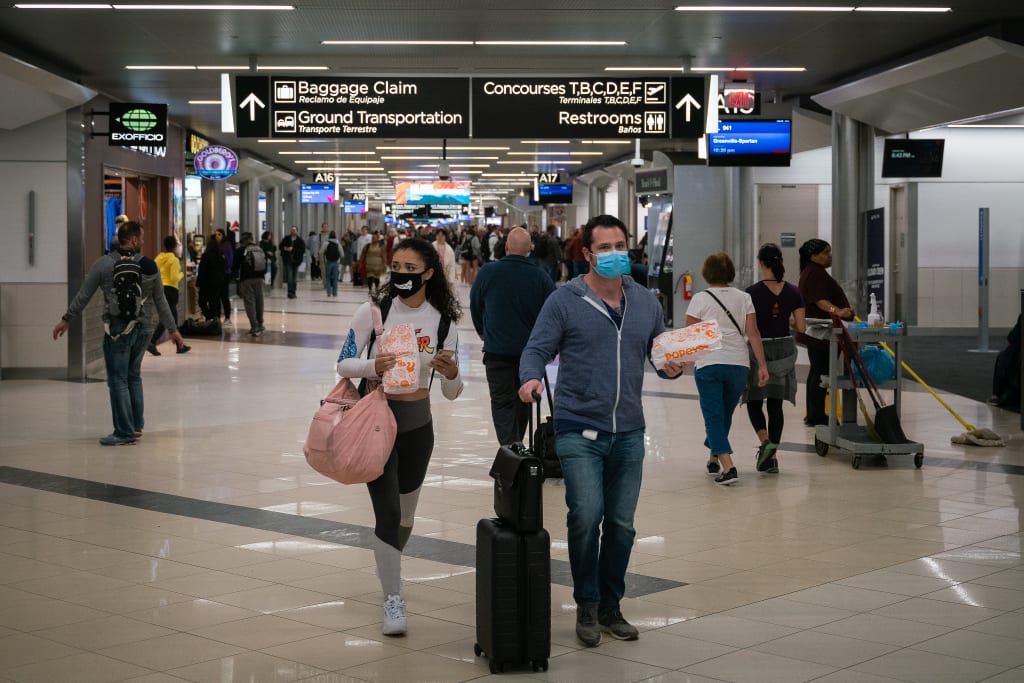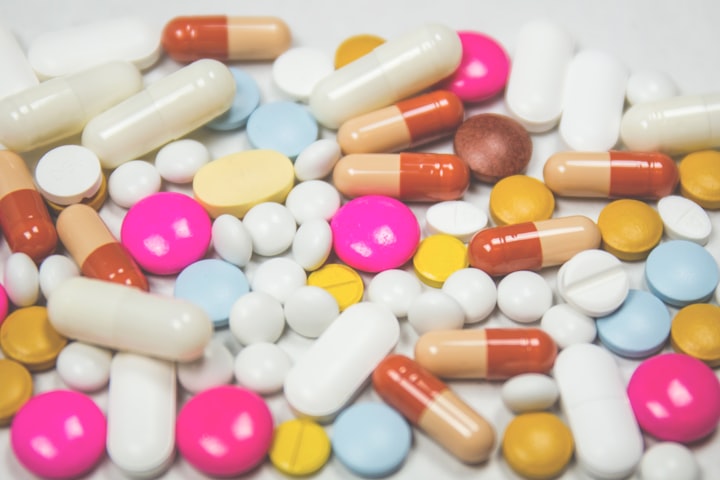
In 1918, an influenza pandemic rocked the world. Wealth inequality was a big issue at the time, and the class divide proved fatal. In the first wave, the poorest in society were disproportionately affected. Now, a century later, history is repeating itself.
The corona pandemic is already proving to punish the working class much more than their wealthy counterparts. The consequences could affect the poorest in society for years, as the social and economic divisions apparent, make it deadlier.
The gap in society
The wealth gap was highlighted almost instantly when the government advised everybody to work from home.
Sure, bankers, corporate workers, and academics could easily transform into remote work, but labour and hospitality workers could not.
When shops began filling up with terrified people choosing to stockpile, minimum wage supermarket workers had no solid choice but to go into work - despite it being a breeding ground for the virus.
Labour workers faced one big issue that the elite didn’t have to worry about. If they didn’t go into work, they wouldn’t get paid.
A Pew survey found that while the majority of people on higher wages would continue to get paid if they missed work due to the coronavirus, only 16% of those on lower wages could share this privilege.
Upper-class people, for the most part, do not have to worry about missing a paycheck or being paid less. For the working classes, this could flip their whole world upside down in just a week.
While the virus doesn’t discriminate against who it infects, the burden definitely falls on those in the lower classes.
How does a pandemic disproportionately affect the poor?
It’s a reinforcing cycle, that was seen 102 years ago. Pandemics always affect those with less money. But how?
Healthcare
Let’s begin with one of the most topical issues at the moment - healthcare. Yes, in many countries healthcare is free. However, the strain could prove detrimental.
In the UK, the NHS was crumbling; struggling to stand - this was before a pandemic. Now, it’s proving to be way too underfunded to sustain a crisis like this. Sure, private hospitals donating hospital beds is a wonderful concept. However, you have to ask; how ethical is the idea of private hospitals when people are lying on NHS hospital floors?
Of course, in America, the issue of healthcare is heightened. The coronavirus has exposed the impotence in the US health system. Only during a pandemic did it become abundantly clear that America was much less prepared than countries with universal health care.
It’s clear that many Americans won’t seek the care they need because of the costs. Rather, they will stay away from care and monitoring - this disables knowledge of how widespread a virus is and therefore limits how much of an informed response that experts can make.
It goes without saying - universal healthcare isn’t perfect, nor will it perform perfectly in a pandemic. Take Italy as a sobering example. However, America is still much less prepared for a pandemic, and it is those who can’t afford healthcare that will feel the consequence of that.
If there’s one thing that is clear, right now more than ever before - healthcare should be free. As a species, our health is public, therefore healthcare should be public. We all share the same spaces, and thus the same diseases.
Stockpiling
A big trend that has showcased throughout the pandemic, which almost seems apocalyptic - stockpiling.
Droves of people have been stockpiling on food, soap, hand sanitizer, and toilet paper. When panic hits, actions like this are understandable.
However, people who live paycheck to paycheck simply cannot afford to buy items in bulk. This has left those most vulnerable with no supplies. Single mothers have been left without nappies for their babies, and old people can no longer pick up milk.
Retailers have now begun taking necessary steps to meet the rise in demand for certain items. Again, showing the importance of minimum wage shop workers and so-called “low-skilled” jobs.
Experts have said that stockpiling isn’t necessary. However, when those with disposable income are doing so - not only does it push others to do the same, it also leaves people with no access to basic necessities.
Childcare
With schools (rightly) being shut down during a pandemic, another issue affects the lower class.
With those who cannot take time off work for financial reasons, they now have to find childcare.
A battle to find daycare, when everything is closing, proves to be an issue. Especially for those who cannot afford nannies.
While for the upper classes, closure of schools may be a minor inconvenience at most. For the poorer people in society, closure of schools leaves parents with a limited choice.
While they cannot miss work for financial reasons, they also cannot afford to fork out money on childcare unexpectedly. It’s a lose-lose situation that puts more people at risk.
COVID-19 and celebrities
Of course, a virus doesn’t care who’s rich and famous. However, a virus will confirm what we all knew - the richest and famous will always be seen as a priority.
Like in a weird dystopian movie, testing for the virus on ordinary folk ended. Not only does this mean that figures about how the disease has spread are unavailable, but it also means many are walking around without knowing they’re infected.
So, when Idris Elba posted a video stating that he tested positive (despite showing no symptoms) cracks in our society begin to show.
We question; why and HOW did he get tested so quickly when ordinary people are only being tested when they’re in critical conditions?
It also begs the question; why are we all so shocked when we realise that celebrities aren’t immune. Why do we have such cognitive dissonance towards these human beings?
While the world scrambles around for one single test, celebrities like Elba and Hanks have access to them with no issue at all.
Even first responders struggle to get access to tests - but celebrities and the super-rich are provided with them at a heartbeat. We shouldn't be turning a blind eye to this.
The fact is, ordinary folk are not seen as a priority for testing. Does this fall in line with the controversial herd immunity theory which was suggested earlier this week? We can either accept that there are serious flaws in our society or ignore it and carry on.
Corona has highlighted just how unjust and tainted the system truly is.
Poverty and disease
You’ve probably heard “vulnerable people” get passed around. This commonly refers to the elderly and those with pre-existing health conditions.
Alongside this, extensive research suggests that low socioeconomic status should also be considered a risk. Even those above the poverty line are at a higher risk.
As inequality has risen throughout the years, health disparity has also widened. This is due to preventive care being unavailable and health education being rare.
Chinese Centre for Disease Control and Prevention revealed that COVID-19 can be up to twice as deadly for those with lower incomes.
Not to mention the spread of disease for poor people. Take India’s slums as an example - these are people living in crowded conditions, with very little access to sanitation. It’s a ticking time bomb that will prove fatal.
How will corona change the world?
Already, the disease has instilled class consciousness amongst many. Even non-political people have opened their eyes to the injustices surrounding healthcare, wages, rent, and the elite.
The disease has already completely shattered lives, disrupted markets, and exposed the unjust inequalities apparent in society. Already, it has lead to shifts in the economic and political powers.
The pandemic is proof of just how connected our earth is. Man-made borders and restrictions do very little and, at the end of the day, we are all on this earth together.
The pandemic has pushed many societies into more socialist tactics (think public healthcare, a shelter for all, and key workers recognised).
While imposing more policing might push to more “authoritarian” rule, the general public is now more aware of the fatal inequalities in our society.
It also shows the resilience and power of the human spirit. Singing from Italian windows. Cuban doctors helping Italians. NHS workers offered free food and drink. Volunteers helping the elderly.
As humans we can prevail in difficult times - it’s a challenge but it will get better.
When this blows over, and it will, we need to start a discussion about wealth inequality in our society. The poorest deserve to be prepared for a pandemic, just as much as the rich.
About the Creator
Hexe News
For witchy women by witchy women






Comments
There are no comments for this story
Be the first to respond and start the conversation.